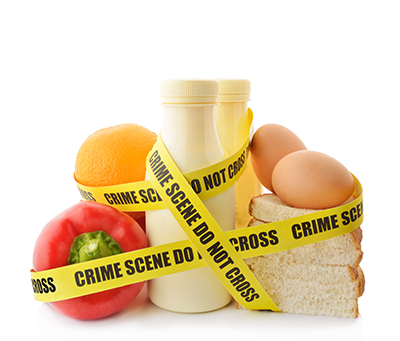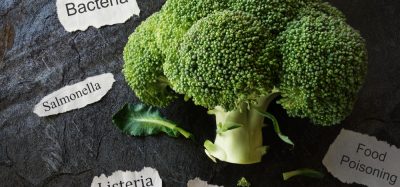Don’t get caught up in the Act!
- Like
- Digg
- Del
- Tumblr
- VKontakte
- Buffer
- Love This
- Odnoklassniki
- Meneame
- Blogger
- Amazon
- Yahoo Mail
- Gmail
- AOL
- Newsvine
- HackerNews
- Evernote
- MySpace
- Mail.ru
- Viadeo
- Line
- Comments
- Yummly
- SMS
- Viber
- Telegram
- Subscribe
- Skype
- Facebook Messenger
- Kakao
- LiveJournal
- Yammer
- Edgar
- Fintel
- Mix
- Instapaper
- Copy Link
Posted: 6 September 2016 | New Food | No comments yet
The Food and Drug Administration has issued a new reform: the Food Safety Modernisation Act. This act will affect all players in the food and beverage industry, not only in the United States, and will start falling into place this month…


The Food and Drug Administration (FDA) has issued a new reform: the Food Safety Modernisation Act (FSMA). This act will affect all players in the food and beverage industry, not only in the United States, and will start falling into place this month.


New Food attended the IAFP 2016 event in St Louis, Missouri, and interviewed two experts in the industry: Akhila Vasan from Grocery Manufacturers Association (GMA) and Robert Brackett from Institute for Food Safety and Health (IFSH).
In the first video, Robert Brackett, Director of the IFSH at Illinois Institute of Technology, explains that they are developing a curriculum that can be followed by small and medium companies and how they are providing training in the United States as well as overseas to insure that people are well aware of how they must prepare for the FSMA.
In the second video, Akhila Vasan explains how to become a Preventive Controls Qualified Individual (PCQI). Each business will have to have a PCQI that will help prepare a Food Safety Plan.
What is FSMA?
The FDA Food Safety Modernization Act (FSMA), signed into law by President Obama on Jan. 4, 2011, enables FDA to better protect public health by strengthening the food safety system. It enables FDA to focus more on preventing food safety problems rather than relying primarily on reacting to problems after they occur. The law also provides FDA with new enforcement authorities designed to achieve higher rates of compliance with prevention- and risk-based food safety standards and to better respond to and contain problems when they do occur. The law also gives FDA important new tools to hold imported foods to the same standards as domestic foods and directs FDA to build an integrated national food safety system in partnership with state and local authorities.
About 48 million people (1 in 6 Americans) get sick, 128,000 are hospitalized, and 3,000 die each year from foodborne diseases, according to recent data from the Centers for Disease Control and Prevention. Preventing foodborne illnesses will improve public health, reduce medical costs, and avoid the costly disruptions of the food system caused by illness outbreaks and large-scale recalls. In our increasingly interconnected world, we need a strategy that meets the public health demands of a global marketplace and addresses the complexities and challenges of food safety in the 21st century.
How will FSMA impact the food and beverage industry?
Concerning the food industry, FSMA creates a risk-based regulatory framework (a system that weighs the risks through hazard analysis, preventive controls, oversight, and management of the controls) that holds food manufacturers accountable for having a food safety plan, verifying it is working, and taking corrective action when it isn’t. The rule will help ensure that food companies are taking action and working with the FDA to prevent hazards to customers on the front end, rather than waiting to act until an outbreak has occurred.
Concerning the beverage industry, in general, the water used in beverage products (bottled water, juice beverages/drinks, alcoholic beverages, etc.) are subject to the requirements in CGMP regulations in 21 CFR part 110 (to be replaced by 21 CFR 117 subpart B as part of FSMA rulemaking). Bottled water and some beverages made from bottled water are subject to additional CGMP regulations for bottled water in 21 CFR part 129 and bottled water quality standard regulations in 21 CFR 165.110(b). In addition, some beverage manufacturers will be subject to the Current Good Manufacturing Practice, Hazard Analysis, and Risk-Based Preventive Controls for Human Food rule (CGMP & PC rule) beginning in September of this year. Juice manufacturers are subject to CGMP regulations in 21 CFR part 110 (to be replaced by 21 CFR 117 subpart B as part of FSMA rulemaking) but because they are subject to HACCP regulations in 21 CFR part 120, they will not be subject to the preventive controls requirements in the CGMP & PC rule.
When does FSMA come in to play? What do you need to do to get ready for FSMA?
Compliance dates vary from rule to rule and are staggered based on business size. You can find compliance dates for each rule in the following presentation: http://www.fda.gov/downloads/Food/GuidanceRegulation/FSMA/UCM444096.pdf.
The FDA and others will provide industry with valuable tools to make compliance with the final rules easier, such as guidances, training courses, and a technical assistance center. Questions about the FSMA rules, FSMA programs, and implementation strategies after the rules are final can be submitted to FDA at http://www.fda.gov/Food/GuidanceRegulation/FSMA/ucm459719.htm
While members of the food industry are ultimately responsible for getting the training they need to comply with the FSMA rules, the FDA recognizes the importance of its role in facilitating that training. For the agency, this means joining with public and private partners in state, federal, tribal and international governments, industry, and academia in the development and delivery of training.
One size doesn’t fit all. The most important goal that the FDA expects of any training program is the outcome—that it advances knowledge among the food industry to meet FSMA requirements. Please find more information on training here: http://www.fda.gov/Food/GuidanceRegulation/FSMA/ucm461513.htm.









